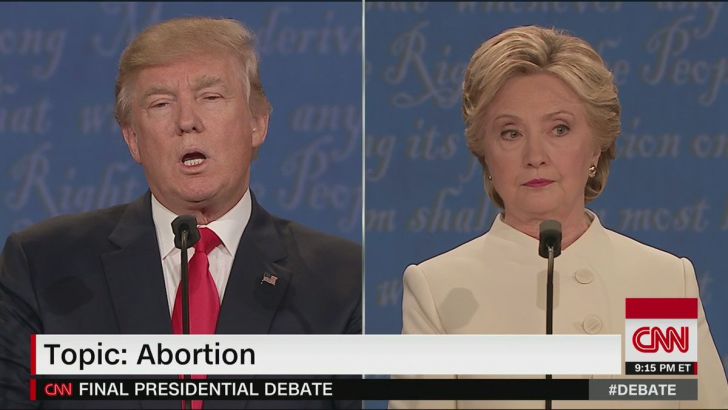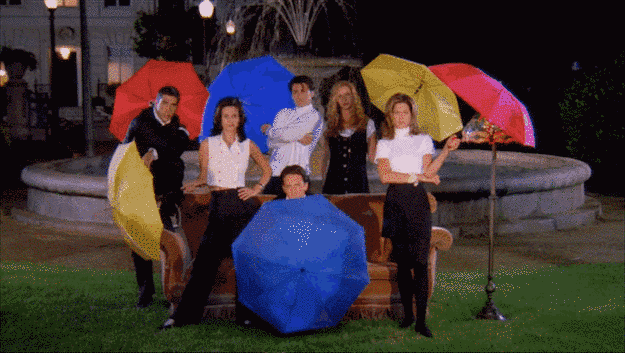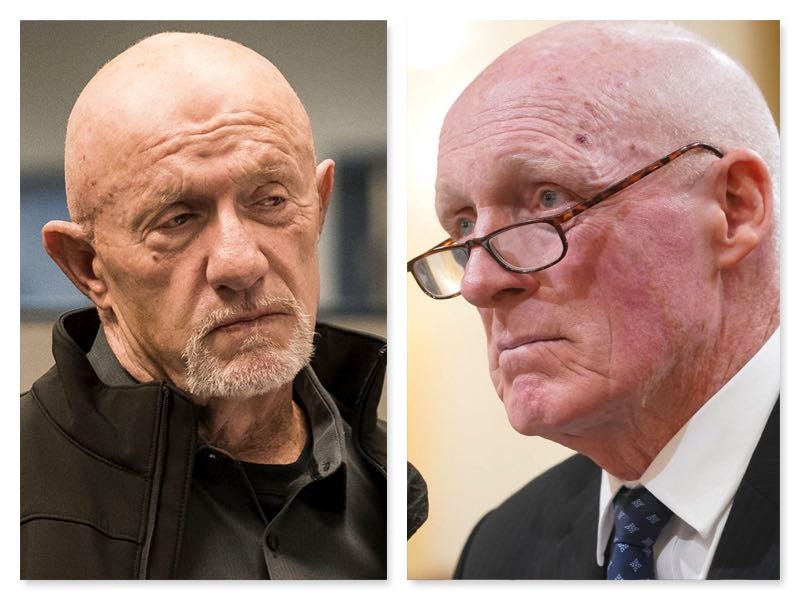Modern History
Abortion is now illegal and the January 6 committee is making a strong case of criminality against the former president. Will any of this matter and when will we know?
Welcome to the Quarantine Creatives newsletter, a companion to my podcast of the same name, which explores creativity, art, and big ideas as we continue to live through this pandemic.
If you like what you’re reading, you can subscribe for free to have this newsletter delivered to your inbox on Wednesdays and Sundays:
When History Stopped
I came of age during the relatively calm period of the 1990s. Sure, there were scandals like the Clinton impeachment and high impact events like the bombing of the Murrah Federal Building in Oklahoma City and the shooting at Columbine High School in Littleton, CO. But when I think of the majority of the “history” of the 1990s, I think of it more in pop culture terms. Grunge music, Friends, Titanic, and event to an extent the OJ Simpson trial were more at home on MTV than in the pages of the New York Times. We didn’t have “real” things to worry about, so we put meaning into superficial things.
Because the 1990s seemed relatively uneventful, it was easy to think of “history” as something fixed, static, and belonging to the past. As I wrote a few weeks ago: “A lot has changed in the last twenty years: the iPhone and social media didn’t exist back then. Yet, at the same time, 2002 feels like it was about 5 years ago.”
The relative peace and calm that I remember as a child was an illusion. The world was still a scary place, but it was easy for somebody like me, raised in a middle class family during a strong economy, to assume that my privileged life was just the way that things were. Wars took place long ago, famine was a problem for developing countries, and any disease could be treated with a prescription from a doctor.
The last several years have shown that our economic, health, climate, and political systems are much more fragile than many of us realized. The Supreme Court’s decision last week in Dobbs vs. Jackson Women’s Health Organization, where the court ruled by a 6-3 majority that abortion could be outlawed at the state level is the latest example of how quickly things can change.
Almost immediately after the ruling was released, states with “trigger laws” on the books began banning abortions.

Many people thought this day would never come. Yet, Donald Trump predicted this exact moment in specific detail during a presidential debate with Hillary Clinton in 2016 (excerpted in this tweet- click below to play it):
In that clip, Trump is laying out what would happen in plain, clear language, which is a bit jarring when compared to his usual hyperbolic tone. For some people, Evangelicals in particular, this was a signal that this thrice married philanderer was truly on their side, at least on the abortion issue. For others, it was a moment that came and went, hardly worth scrutiny. But these words seem quite prophetic now with the benefit of hindsight.
It has been occurring to me that history is not as static as I used to think. History is not just the domain of textbooks, but it is being written all around us everyday, even if we don’t always realize it. In the moment, history is like a bunch of words or fragments that don’t always make sense on their own. It takes looking back and contextualizing events, putting those pieces together in a logical sequence, to actually write the full story of what happened.
Of course an event like the Supreme Court’s decision last week was a turning point, but we don’t yet know the rest of this narrative. Will this be the moment when Americans say enough is enough (85% of American voters are in favor of at least some form of abortion) and politicians feel the pressure to codify the right to an abortion into law? Or will last week be remembered as the “good old days” before the floodgates are opened and escalating terror is released upon us?

In the Back to the Future trilogy, a series of events take place to the characters over a single week in November, 1955 that set the stage for so much of what’s to come in their lives, even if it seemed like a relatively insignificant week as they were living it. We as the audience understand the significance with the benefit of having seen the future (1985) at the beginning of the movie.
Doc Brown has a vision for the flux capacitor, which will lead him to invent a practical time machine over the next thirty years. George McFly and Lorraine Baines meet and begin falling in love. Biff Tannen receives a sports almanac from the future that allows him to amass a fortune and build a large casino in the years to come. Even Goldie Wilson decides as a young soda hop that he will be mayor of Hill Valley someday.
The importance of authorship of our history has been on full display during the January 6 committee hearings this month. I have been riveted watching each meeting.
As a producer and director, it occurs to me how much the committee has been acting like documentary filmmakers. When I’ve interviewed documentarians like Tom Jennings or Matt Trynauer on my podcast, I’ve heard about how important telling a strong story can be and how the right piece of archival footage or the perfect sound bite from an interview can be invaluable in making a story come together. Documentary directors are often taking familiar events and sequencing them into a narrative where the through line may not have been obvious at the time the events originally occurred.
The January 6 committee has told a cohesive narrative in a very disciplined way. Congressional meetings like this often involve a lot of posturing and grandstanding on the part of the politicians, but there is none of that in these hearings.
The witnesses that have testified have all been well spoken and high ranking. They seem to have been almost type-cast in their roles. An old, gruff Republican like Rusty Bowers seems just the type that might be subject to corruptibility with the right attention from a president (or maybe it’s his resemblance to Mike Ehrmantraut from Breaking Bad and Better Call Saul that makes me think that). But Bowers played against that type when confronted with the choice to overturn Arizona’s election results, which he described in live testimony before the committee.
Witnesses that may be less sympathetic to the public or who may be more unpredictable in person have been diminished to sound bites pulled from taped depositions. It’s much more powerful to hear Bill Barr, Ivanka Trump, or Rudy Giuliani speak for a damning sentence or two rather than listen to live testimony where they’re cognizant of protecting themselves and may obfuscate.
The juxtaposition of live testimony, taped sound bites, clips of rioters on January 6, excepts from Trump’s public speeches, and news footage work in the same way a documentarian edits a story- putting together disparate pieces of video that weave a narrative.
Perhaps these hearings feel like a documentary because they are actually being produced. James Goldston, former ABC News president, has been consulting with the committee to ensure their intended story is told clearly. As somebody who once supervised shows like Good Morning America and Nightline, Goldston understands what makes compelling television and how best to present that story to an audience in a way that will make it stick. At least, that’s the hope.
What effect will the January 6 hearings have? Many of us had high expectations for the release of the Mueller report or the impeachment trials of Donald Trump (yes, trials, plural), but all of those events seem like they will be relegated to footnotes of history, at least as we view it now.
But suppose that the January 6 hearings lead to high profile arrests, up to and including Donald Trump? That could change the context of the Mueller report and the impeachment trials to be antecedents, important baby steps before a big leap forward. They may someday be plot points on the graph of Trump’s criminal activities, even if they seem less relevant right now.
However, the hearings could also not make an impact at all. Through voter suppression and gerrymandering, Republicans could take control of one or both houses of Congress in 2022 and possibly even the White House in 2024. At that point, Trump would not be regarded as the most criminal president we’ve ever had, but instead may be venerated as the president that packed the courts and made abortion, gay marriage, and who knows what else illegal. There could be statues erected in his honor across the country.
We are living through history right now, but we don’t have any idea the lens through which our lives will be viewed by future generations. To quote George Washington from the play Hamilton (as I am known to do):
“Let me tell you what I wish I'd known
When I was young and dreamed of glory
You have no control
Who lives, who dies, who tells your story?”
If you enjoyed reading this piece, please consider subscribing to this newsletter. I publish pieces twice a week that look at how entertainment, media, home, family, work, and so much more are evolving as we redefine our world. Plus, it’s completely free!
Related Reading
How to Make a Documentary from Home
If you’d like to catch up on past episodes of the Quarantine Creatives podcast, they can be found on Apple Podcasts, Spotify, or wherever you listen.
Please consider sharing this with a friend that you think might enjoy it, or better yet, share it on social media so you can tell hundreds of friends!
If you’ve missed past issues of this newsletter, they are available to read here.
Stay Safe!
Heath










Excellent and well written piece on timely and important events.